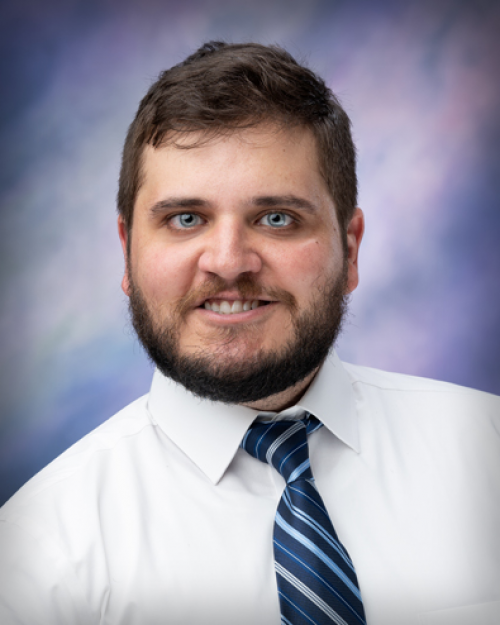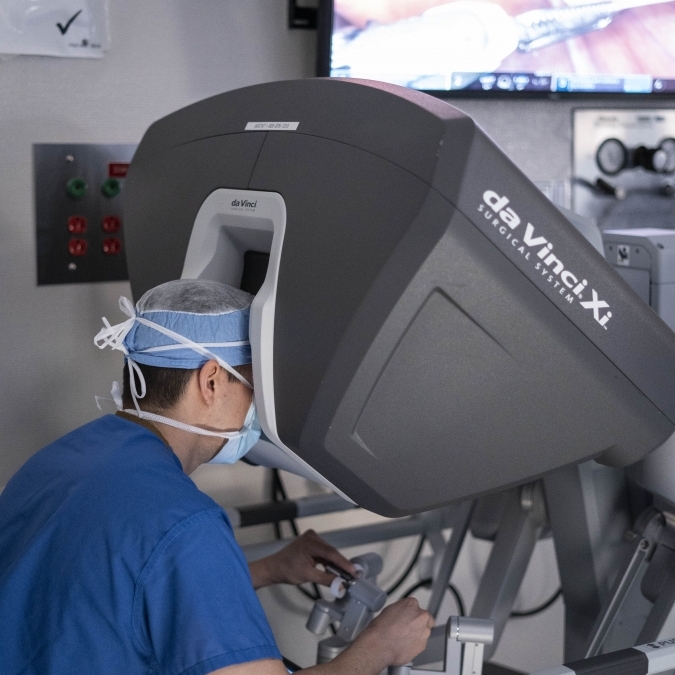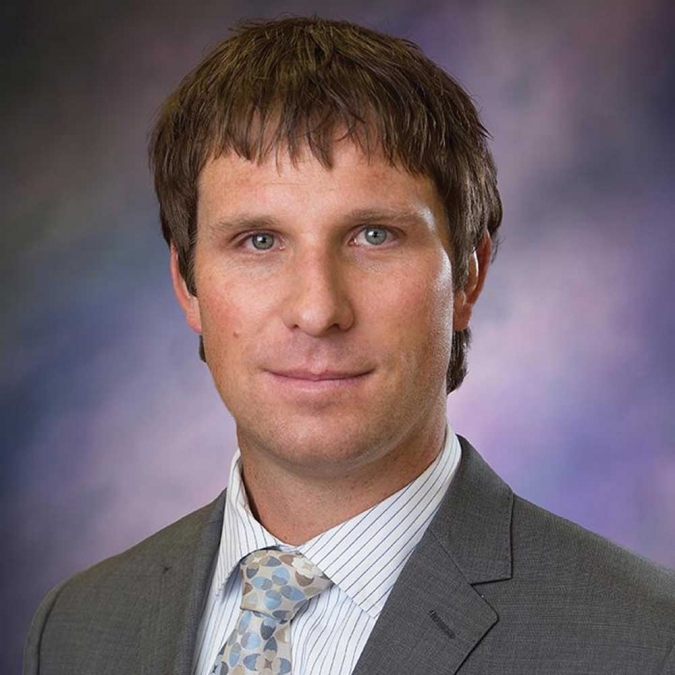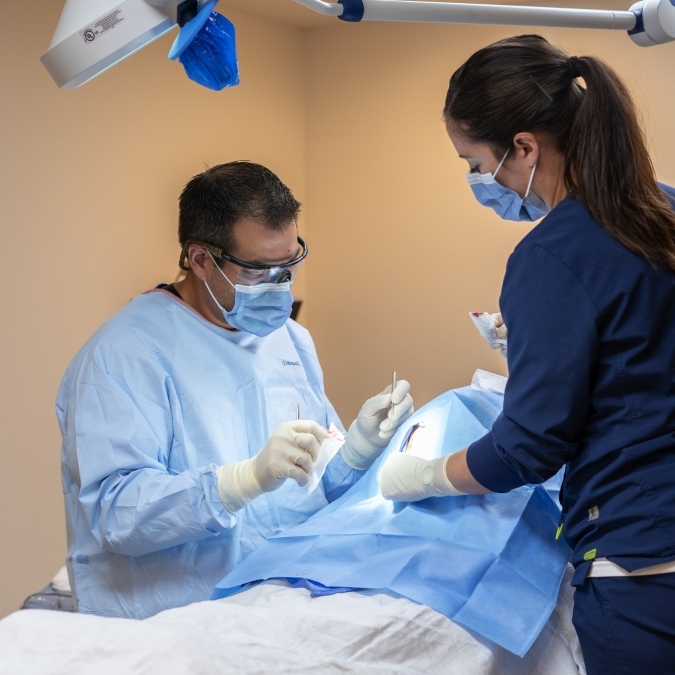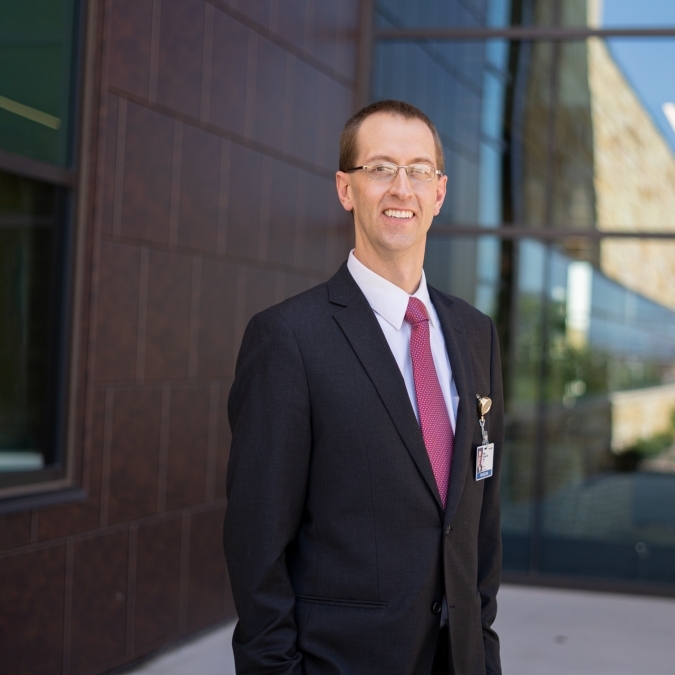What is mental health, and why is it important?
Mental health is the area of study relating to the mind and emotions. Everyone has mental health, just as they have physical health, and it’s when those two areas come together that we have overall health. Our mental health and our physical health are interconnected, so some physical issues impact the mind and some mental issues impact the body. To be truly healthy, we need to take care of both.
If I know somebody who is struggling, what should I do?
The old adage, “See something, say something” could not ring more true. If you know someone is struggling or dealing with emotional situations or thoughts of suicide, it is crucial that they get help. A lot of people worry that talking to a loved one about their suicidal thoughts may push them toward that outcome, but we know that isn’t true at all. People with depression or suicidal thoughts often report feeling that they are alone or that their loved ones would be better off without them. Changing that belief is very important and can have a significant impact on lowering the risk of suicide. These individuals likely need to speak with a mental health professional, but there are lots of people who you can reach out to in order to take the first step in getting help. Some examples are police officers and firemen, teachers, nurses such as at school or in the clinics and even parents or a trusted adult. If you are with someone in need of help and you are not sure what to do, you can always go to an urgent care clinic, police station or emergency room where there are trained people who want to help.
James Hellekson, M.D., is a psychiatrist at Monument Health Behavioral Health Center. A South Dakota native, he grew up in Faith, S.D., and went on to complete a bachelor’s degree in Psychology/Sociology from Black Hills State University. He then earned his medical degree and completed his psychiatry residency, both at the University of South Dakota Sanford School of Medicine. Dr. Hellekson specializes in adult psychiatry, primarily treating patients 18 and older.
When should I or somebody I love seek professional help?
Immediately. If someone tells you that they are thinking of hurting or killing themself or someone else, call for help immediately. Other options would be to go to the emergency department right away. Anytime someone close to you talks about “ending it all” or gives away prized possession, they need help. If someone tells you they just want to go to sleep forever; that is a sign they need help. There is never a wrong time to ask for help.
What are the warning signs of somebody struggling with mental health?
In adults, we see difficulty concentrating, an increased need to sleep or not sleeping as much, change in appetite and not enjoying things that were once enjoyable. Often hobbies will get abandoned, alcohol and drug use may increase and people may lose the desire to go out or see friends. Teens and kids tend to be angrier and begin exhibiting behavior problems. Generally there are more outbursts with teens. Grades dropping and not performing well in other tasks are common symptoms. Every person, regardless of age, handles mental health concerns differently. It is important to remember that talking is not going to make them worse. Be the person who cares enough to listen.
What role can medication play in helping patients with mental health struggles?
Medication, like any other type of treatment or therapy, can have a significant positive impact. But there is no magic pill that will fix all mental health problems. Medications will manage the symptoms, but personal reflection and therapy may be needed to deal with the long term effects of depression. Medications can be a great way to treat the chemical imbalances and manage symptoms, but they are not immediate and can take weeks to fully have an effect.
Do you see an impact of the COVID-19 pandemic on mental health?
Loneliness and social isolation are very significant stressors for many right now. Alcohol and drug use are on the rise and people are citing stress-related issues like insomnia and anxiety more and more. In our area, we’re seeing an increasing need for inpatient services, follow-up care and outpatient alternatives.
What can the general public do to help stop the stigma around mental health?
Listen to each other. Be open minded and don’t shy away from loved ones in need of help. Keep in mind that mental illness is really no different than physical illness. If we can look at it that way, the stigma will shift. We don’t tell someone with a broken arm that they should just decide that it isn’t broken, yet people with depression are told, “just decide to be happy,” all the time. We would never tell someone who wears glasses that they are choosing to need them, but many people don’t take antidepressants because they’re encouraged not to. The stigma can be overcome if we as a society work together, communicate openly and accept each other for who and what we are without malice or judgment.
What can we do on a daily basis to promote positive mental health?
Turn off the news and pick up your hobby again. This has been tough during the pandemic, but it can be done, and it will absolutely make you feel better. Make sure that you are getting enough sleep, enough exercise and enough water. Spend 15 minutes per day outside in the sunlight. Do positive things like practicing daily affirmations, doing yoga and enjoying family outings. These all sound simple, but they can have positive effects.
If you’re struggling with your mental health, the best thing you can do is to reach out for help — you can always start by texting 741741 or calling 1-800-950-6264 for free, confidential support.
